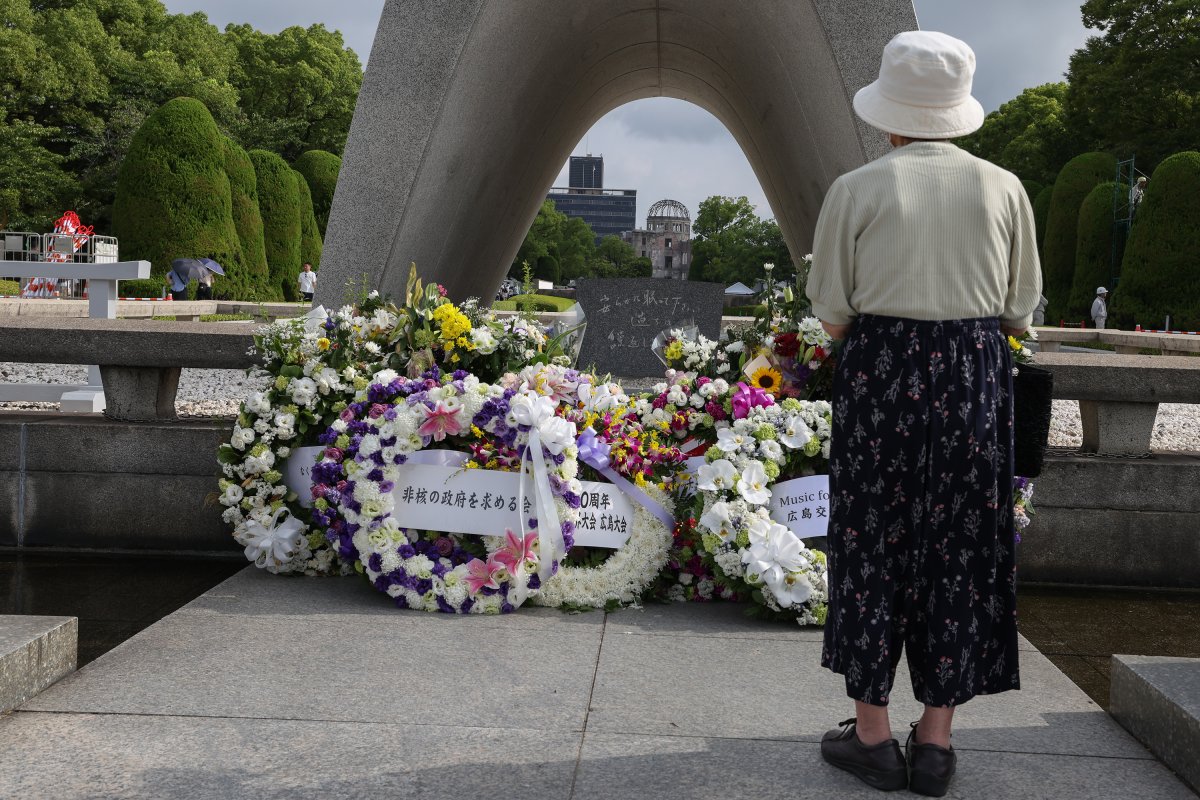Login to Continue Learning
At a ceremony marking the 80th anniversary since Hiroshima was devastated by an American atomic bomb, Mayor Kazumi Matsui warned that conflicts in Ukraine and the Middle East have contributed to growing acceptance of nuclear weapons. This trend threatens the lessons learned from their devastating effects.
Why It Matters:
On August 6, 1945, a U.S. B-29 bomber dropped “Little Boy” on Hiroshima, followed by another bomb on Nagasaki three days later, ending World War II with Japan’s surrender. The 80th anniversary has focused attention on the legacy of nuclear weapons as Russia issues nuclear threats linked to its war in Ukraine. It also comes amid U.S. efforts to target Iran’s underground facilities to prevent atomic bomb development.

This image shows the cenotaph at Hiroshima Peace Memorial Park on August 5, 2025, before the anniversary.
What To Know:
Dignitaries, survivors, and representatives attended a commemoration at the Hiroshima Peace Memorial Park. Matsui stated that Russia’s war in Ukraine and Middle Eastern conflicts have increased nuclear weapon acceptance, threatening lessons about atomic bomb horrors. He urged younger generations to understand the “utterly inhumane” consequences of nuclear options for their futures.
Matsui also called for greater efforts to abolish nuclear weapons for a genuinely peaceful world.
What People Are Saying:
– Mayor Matsui: “Policymakers must take heart from Hiroshima’s peace-loving spirit and begin discussing trust-based security frameworks through dialogue.”
– Yoshie Yokoyama, 96: “My parents-in-law also died in the attack. People are still suffering.”
– U.N. Secretary-General António Guterres: “The very weapons that brought devastation to Hiroshima and Nagasaki are being treated as tools of coercion.”
What Happens Next:
Nagasaki Memorial Day will occur on Saturday, with ongoing somber reflections on the 80th anniversary’s lessons. Global warnings about nuclear tensions, like those from Guterres, are expected to continue.
📚 Reading Comprehension Quiz
In his speech at the ceremony marking the 80th anniversary since Hiroshima was devastated by an American atomic bomb, Mayor Kazumi Matsui highlighted which of the following as contributing to the growing acceptance of nuclear weapons?
Please login or register to take the quiz and earn points!



















